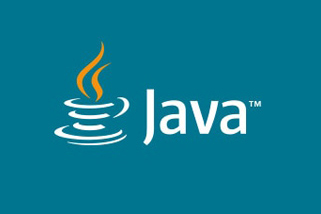You’re accessing archived content
This is archived content from the UIT website. Information may be outdated, and links may no longer function. Please contact stratcomm@it.utah.edu if you have any questions about archived content.
One-time, 12-month Java license set to expire in May 2020
System admins are urged to find no-cost alternatives ASAP

Oracle Corp. began charging for use of its Java projects in January 2019, and the entire IT industry had a decision to make. Keep using Oracle Java, or switch to no- or low-cost alternatives?
In March 2019, UIT notified the U community of the change to Oracle's historically-free Java support, maintenance, and licensing model, and in June 2019 the university purchased a one-time, 12-month subscription license as a stopgap measure. The temporary license covers Oracle Java products used by main campus, Health Sciences, and University of Utah Health organizations through May 2020.
The license buys time for system administrators to take stock of software that runs Oracle Java, and migrate to no-cost alternatives.
"A lot of people are still getting caught off-guard by this, and it’s important to act quickly," said Brad Millett, associate director of Strategic Infrastructure Initiatives in the Chief Technology Officer (CTO) organization. "This one-time enterprise license came at a tremendous expense to the university, and there’s no central budget for it to be renewed."
The situation presents a dilemma for the university because Oracle Java is used extensively in client and server components in many enterprise applications, as well as third-party software.
"It's pervasive, so you may have it installed and not be aware,” Millett said. University IT leaders stress that system administrators need to identify use, document how Oracle Java is integrated into systems and applications they support, and start using free alternatives while the U is covered by the temporary license.
System administrators are also encouraged to access the U’s Oracle Java support portal (authentication is required) in the Office of Software Licensing's software store to download Java SE software and patches provided by the one-time license as they investigate alternatives. Using the OSL portal helps the U track the use of Oracle Java products and enables UIT to communicate directly with cognizant sys admins with the pertinent news and information.
If there's a bright side, it's that software companies like Amazon, Azul, and Red Hat have great free or lower-cost Java alternatives available.
“There are several competing and very viable options to receive Java binaries from various organizations outside of Oracle. Many are free or available at a much lower cost,” Millet said.
A partial list of no-cost, Java Standard Edition (SE)-friendly alternatives is included in an online UIT knowledge article. Millett said the university can't endorse any single solution because the scope of Java integrations is vast and unique to each application, and vendors have their own requirements about what they support.
System administrators who have questions or need assistance should contact local IT support staff or their central IT help desk: Main campus (helpdesk@utah.edu or 801-581-4000 option 1; U of U Health (ServiceDesk@hsc.utah.edu or 801-587-6000).
More information
Partial list of Java alternatives
- AdoptOpenJDK
This popular and effective alternative is not officially certified. There may be confusion around Java Virtual Machine (JVM) options such as Hotspot or OpenJ9. - Amazon Corretto
There may not be support for some operating systems. The primary focus for the product may be for Amazon Web Services (AWS), not client. - Azul Zulu
A no-cost option exists, but Azul Zulu's primary business model centers around enterprise support. - Linux distributions of OpenJDK
These distributions are easily utilized options that come as part of each respective OS. Red Hat also includes a Windows-based client as well.- Examples: Red Hat, Ubuntu, Debian, and SUSe.
- Oracle OpenJDK
While technically cost-free, OpenJDK is provided by Oracle and requires users to upgrade to new major versions every six months to receive ongoing patches.
Node 4
Our monthly newsletter includes news from UIT and other campus/ University of Utah Health IT organizations, features about UIT employees, IT governance news, and various announcements and updates.
